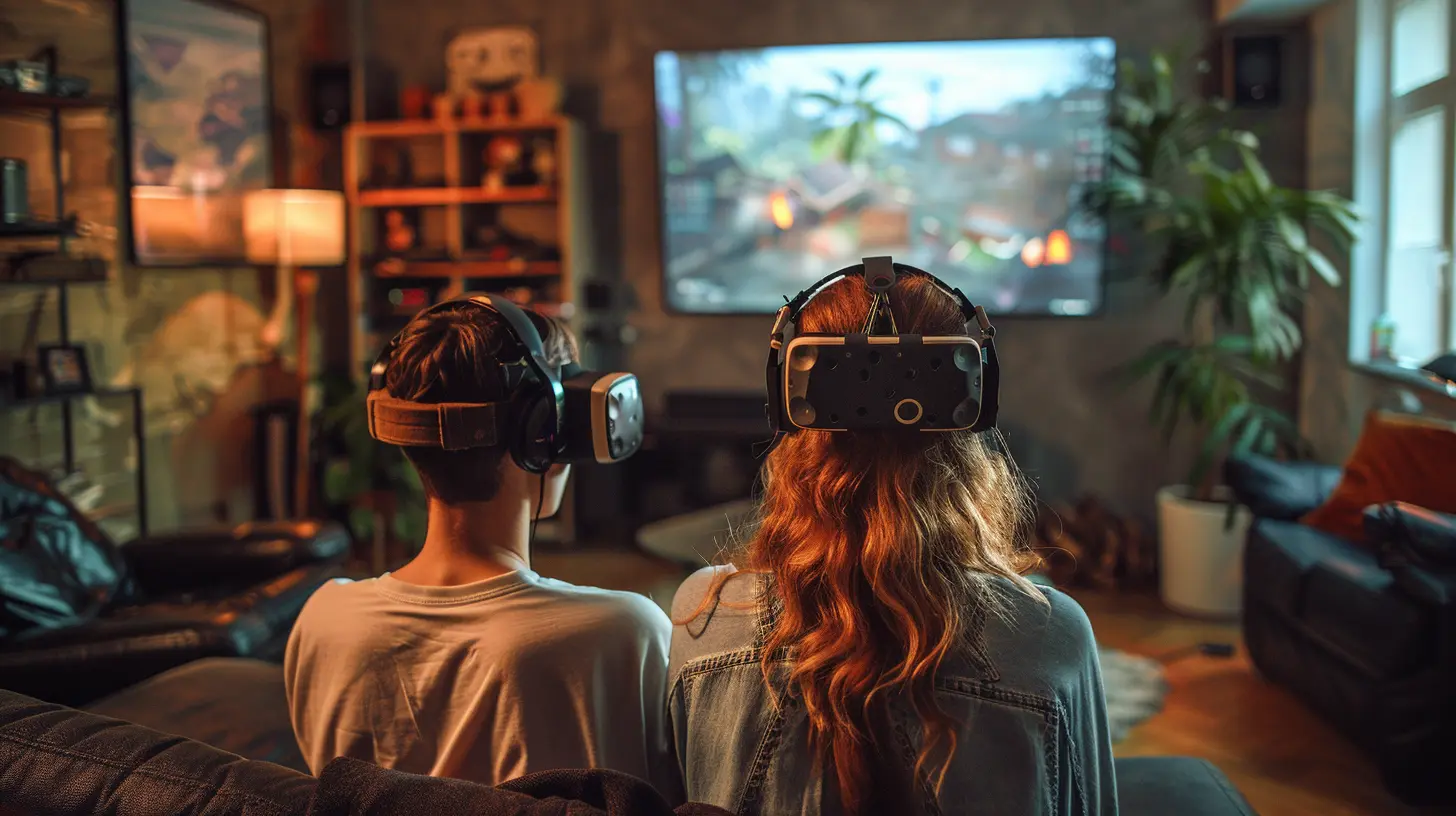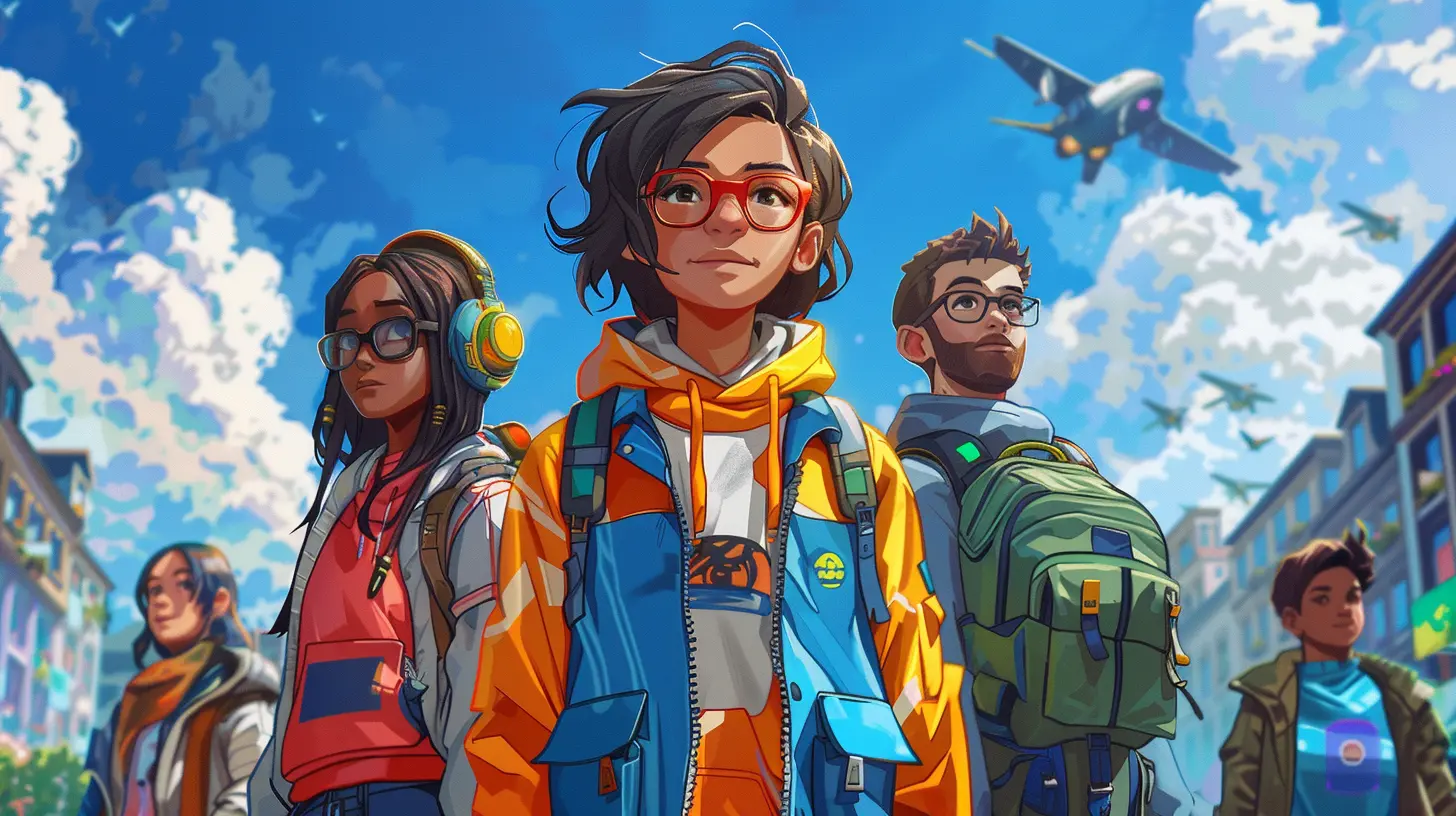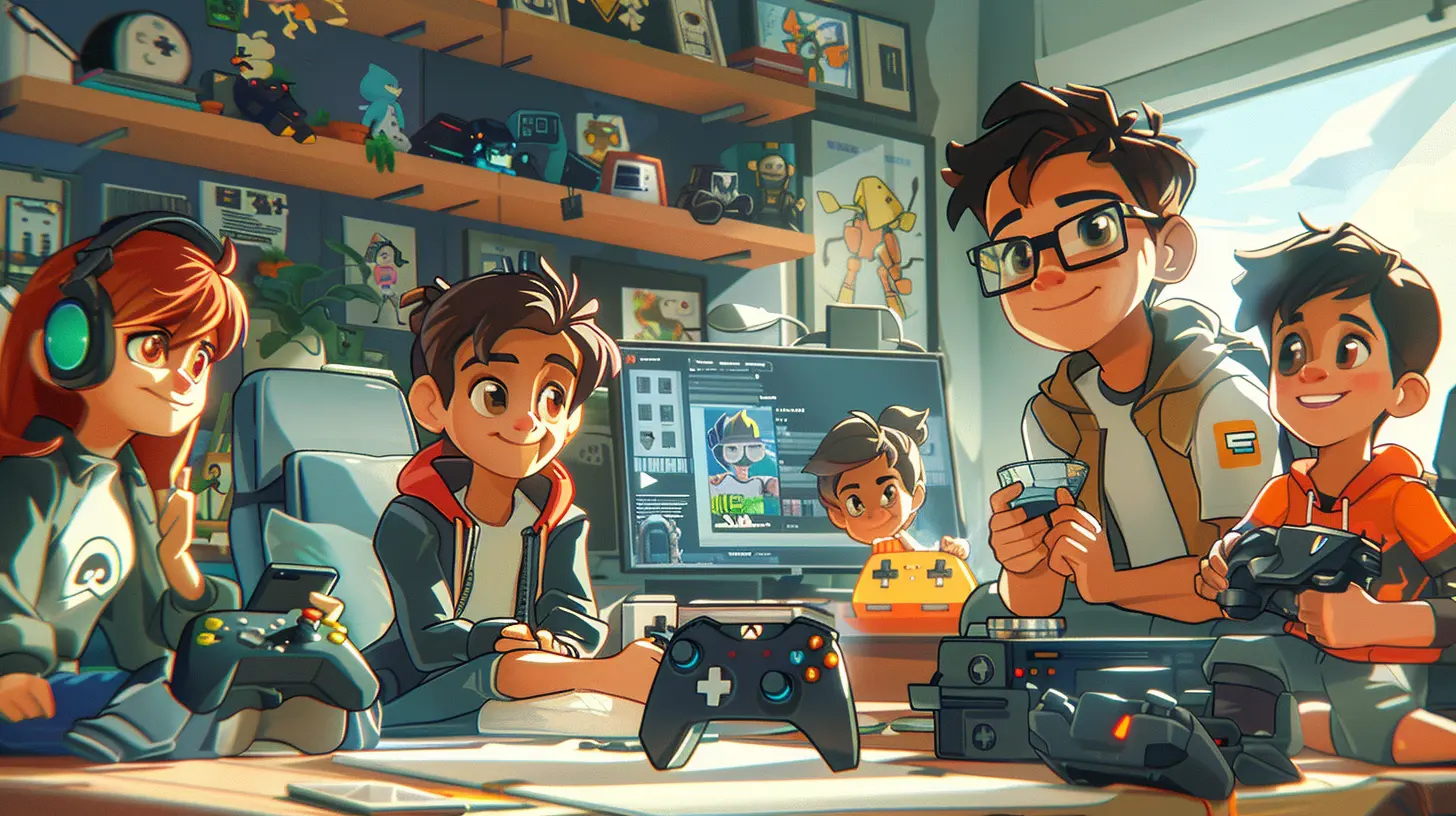Creating Inclusive Spaces in Social Gaming: Tips and Tricks
1 September 2025
Let’s face it: social gaming can be an absolute blast. Whether you’re teaming up with friends to raid a dungeon, laughing over silly mini-games, or competing in intense battles—it’s all about connecting and having fun. But, here’s the thing. Not everyone feels welcomed or included in these spaces. Some players face toxic behavior, gatekeeping, or flat-out exclusion. So, how do we fix it? How do we create inclusive spaces in social gaming where everyone feels like they belong?
That’s the big question we’re diving into today. Let’s look at some actionable tips and tricks to foster an environment where every person—regardless of their background, gender, race, or skill level—can feel at home in the world of social gaming.
Why Inclusivity in Social Gaming Matters
Before we jump into the “how,” let’s talk about the “why.” Why does inclusivity matter in gaming? Simply put, gaming is for everyone. It’s a universal language. It doesn’t care about where you come from, what you look like, or how you identify. But, unfortunately, not all gaming spaces reflect that.Toxic behaviors like bullying, harassment, and gatekeeping are still too common. This isn’t just a bummer for those directly impacted—it also hurts communities as a whole. When people feel excluded, spaces become cliquish and fragmented. On the other hand, inclusive spaces foster creativity, collaboration, and, most importantly, fun. After all, isn’t that the whole point of gaming?
Tip #1: Set the Tone from the Beginning
You’ve heard it before: first impressions matter. This is especially true when it comes to social gaming spaces. Whether you’re hosting a community Discord, joining a guild in an MMORPG, or organizing an online tournament, how you set the tone in the beginning can shape everything that follows.- Establish clear guidelines: If you’re managing a space, write down a clear code of conduct. Make it visible and easy to understand. Set expectations for behavior and emphasize that inclusivity is non-negotiable.
- Be vocal about inclusivity: Don’t be shy about stating your intentions. A simple “we’re committed to creating a welcoming space” can go a long way in making people feel safe.
- Lead by example: If you're a leader in any capacity, your behavior sets the standard. Model kindness, openness, and respect from the get-go.
Tip #2: Call Out Toxic Behavior—But Do It Right
Let’s be real: toxic behavior is like that one mosquito at a summer BBQ. It’s annoying, and if you don’t deal with it, it can ruin everything. So, what do you do when someone crosses the line?- Address it immediately: Ignoring bad behavior just gives it power. When harassment or exclusion happens, act quickly to shut it down.
- Be respectful, but firm: You don’t need to be confrontational or aggressive. Something like, “Hey, that comment isn’t okay. Let’s keep this space welcoming,” is often enough.
- Have consequences in place: Whether it’s suspensions, bans, or time-outs, consequences should be clear and enforced fairly. People need to know that actions have repercussions.
Tip #3: Celebrate Diversity
Inclusivity isn’t just about avoiding the bad stuff—it’s about actively celebrating the good. Social gaming spaces thrive when they reflect the diversity of the people who inhabit them.- Encourage diverse voices: Seek out and amplify underrepresented voices in your community. Whether it’s through leadership roles, collaborations, or simple shoutouts, make space for everyone at the table.
- Highlight cultural events: Embrace opportunities to celebrate different cultures, traditions, and identities. For example, organize in-game events for Pride Month, Black History Month, or cultural holidays.
- Create diverse character designs: If you're a game designer, make sure your characters reflect the diversity of the real world. Representation matters, and seeing yourself reflected in a game can be deeply empowering.
Tip #4: Be Inclusive in Your Language
Words matter. The way we talk to and about each other has a massive impact on how inclusive a gaming space feels. Even small changes in your language can make a big difference.- Avoid assumptions: Don’t assume everyone shares the same background, interests, or experiences as you. For example, avoid phrases like “guys” or “boys” to refer to your team—try “everyone” or “folks” instead.
- Use correct pronouns: If someone tells you their pronouns, respect them. It’s really that simple. And if you’re not sure, just ask (politely)!
- Stay away from slurs or harmful jokes: This should go without saying, but jokes that punch down or rely on stereotypes have no place in inclusive spaces.
Tip #5: Design Games With Inclusivity in Mind
For game developers and designers, inclusivity starts with the design process. Building inclusive games means thinking about accessibility, representation, and community-building from the ground up.- Focus on accessibility: Include features like customizable controls, colorblind modes, and text-to-speech options. Gaming should be playable for everyone, regardless of ability.
- Offer representation: Whether it’s through diverse character options, relatable storylines, or inclusive dialogue options, representation in games makes a world of difference.
- Facilitate community interaction: Create tools and features that encourage positive social interactions. Think: community moderation tools, easy-to-report buttons for harassment, and filters for toxic language.
Tip #6: Educate Yourself and Others
Here’s the thing—it’s okay not to know everything about creating inclusive spaces. What’s important is that you’re willing to learn and grow. Gaming communities thrive when their members actively educate themselves and share their knowledge.- Stay informed: Read up on issues affecting marginalized groups in gaming. Follow creators, streamers, and writers who focus on inclusivity in gaming. Keep yourself up-to-date.
- Share resources: Don’t hoard the knowledge! Share articles, videos, or guides with your community. The more informed everyone is, the better equipped they’ll be to contribute to an inclusive space.
- Listen and adapt: If someone calls you out for something problematic, don’t get defensive. Listen, apologize, and do better. Change doesn’t happen overnight, but it’s worth the effort.
Tip #7: Create Opportunities for Collaboration
At its heart, social gaming is about connection. One of the best ways to foster inclusivity is to create opportunities for players to collaborate and bond.- Team-building activities: Whether it’s in-game challenges, trivia nights, or virtual meetups, create events that encourage people to work together.
- Mixed-skill matchmaking: Avoid cliques by pairing experienced players with newcomers. This not only helps new players feel welcome but also strengthens the community.
- Shared victories: Celebrate group achievements over individual wins. When the focus is on the team’s success, everyone feels like a valued member.
Why It’s Worth the Effort
Creating inclusive spaces in social gaming isn’t always easy. It takes effort, patience, and sometimes uncomfortable conversations. But the payoff? Oh boy, it’s huge. When everyone feels welcome, gaming transforms from just a hobby into something much bigger—a thriving, supportive community where people can truly be themselves.And honestly, isn’t that what we all want? To log in, play some games, and feel like we’re part of something bigger? So let’s all do our part to make the gaming world a little kinder, a little more inclusive, and way more fun.
all images in this post were generated using AI tools
Category:
Social GamesAuthor:

Kaitlyn Pace
Discussion
rate this article
1 comments
Lila McKinney
Love this! Inclusivity makes gaming shine! 🎮✨
September 14, 2025 at 3:12 PM

Kaitlyn Pace
Thank you! We believe inclusivity truly enhances the gaming experience for everyone! 🎮✨

